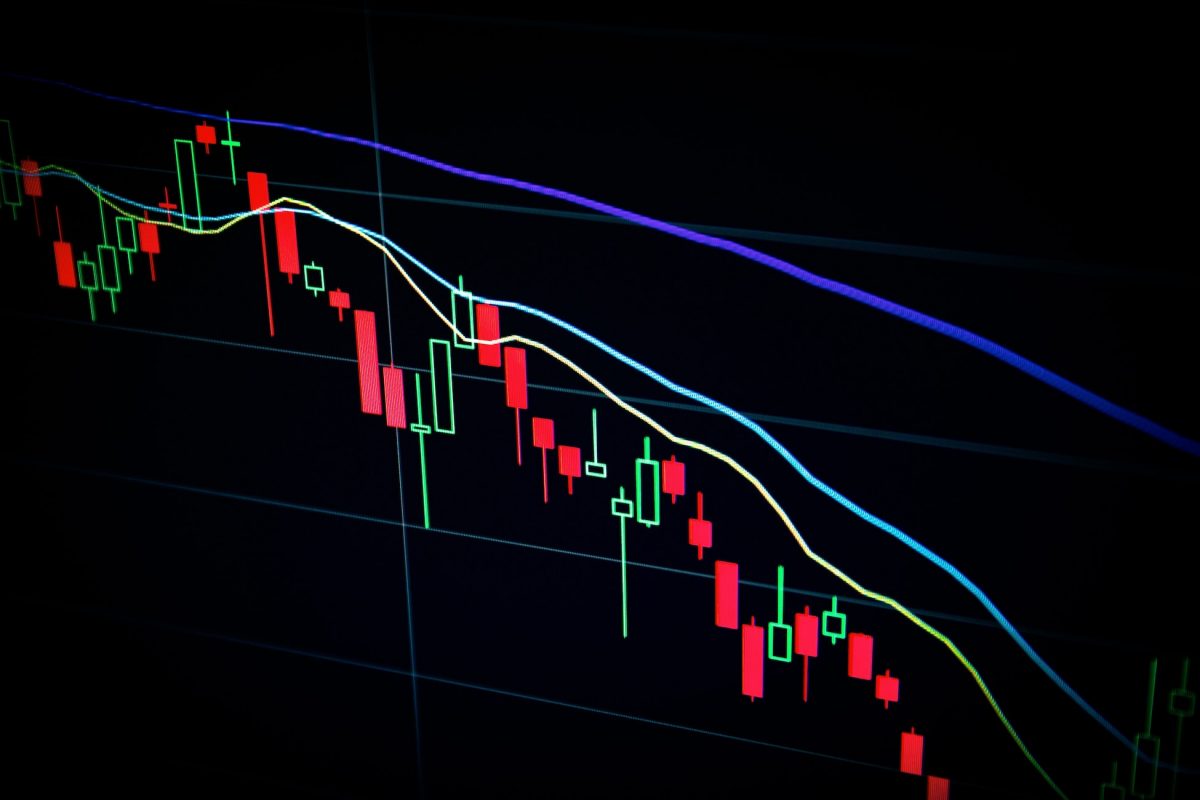Ever felt like your investment choices are as confusing as deciphering a TikTok dance trend? Welcome to the battle of Bond ETFs versus Bonds—a financial face-off where each contender brings its own unique flair and personality. Whether you're a millennial sketching out your first portfolio or a Gen Z genius mapping out your financial future, this guide is your go-to resource for breaking down these two investment heavyweights in a way that's engaging, humorous, and, most importantly, practical.
Bond ETFs Vs Bonds Table of Contents
The Basics: What Are Bonds and Bond ETFs?
Understanding the Mechanics: How Bonds and Bond ETFs Work
Diversification, Liquidity, and Flexibility: The Real Perks
Yield, Duration, and Interest Rate Sensitivity: What to Watch Out For
Pros and Cons: Which Option Aligns with Your Investment Vibe?
Risk Factors: What Should You Keep an Eye On?
How to Choose What’s Right for You
Case Studies: Real-Life Investment Adventures
Tax Considerations: Navigating the Numbers with a Smile
Strategies for Incorporating Bond ETFs and Bonds into Your Portfolio
Common Misconceptions and Myths: Debunking the Drama
Resources and Community Support: Your Next Steps
Unconventional Wisdom: The Road Less Traveled in Fixed-Income Investing
Looking to the Future: Staying Ahead in a Changing Market
The Basics: What Are Bonds and Bond ETFs?
Before you get lost in the maze of jargon and acronyms, let’s break down the fundamentals. Bonds are debt securities—think of them as IOUs issued by corporations or governments. When you buy a bond, you're lending money to the issuer in exchange for periodic interest payments (hello, steady income) and the return of the principal at maturity.
On the flip side, Bond ETFs (Exchange-Traded Funds) bundle a collection of bonds together and trade on an exchange like a stock. They offer a way to invest in a diversified portfolio of bonds without having to purchase each one individually. For those of you who love the idea of diversification without the day-to-day hassle, Bond ETFs might just be your new BFF.
Both bonds and Bond ETFs serve a key role in a balanced investment strategy, especially if you’re looking for stability, income, or a hedge against market volatility. But which one suits your financial style? Let’s dive deeper.
Understanding the Mechanics: How Bonds and Bond ETFs Work
At first glance, bonds and Bond ETFs might seem like distant cousins in the world of fixed-income investing, yet their inner workings differ in several key areas.
Individual Bonds: A Closer Look
When you invest in individual bonds, you’re essentially becoming a creditor. You purchase a bond at a specific price, hold it until maturity, and in return, you receive fixed interest payments over the bond's life. These payments make bonds an attractive option if you’re chasing predictable, steady income. However, keep in mind that bonds come with credit risks and interest rate risks. Should the issuer face financial challenges or if market interest rates rise dramatically, the value of your bond could decline.
Additionally, holding individual bonds means you're tied to the specifics of that debt instrument—its due date, coupon rate, and credit rating. That said, for someone who plans to hold until maturity, bonds can be a stable, if somewhat vanilla, addition to your portfolio.
Bond ETFs: The Dynamic Portfolios
Bond ETFs offer an attractive alternative: instead of selecting individual bonds, you invest in a collection of bonds that are managed as a single product. This approach means you're buying a slice of a diversified, professionally managed basket of bonds, which can help mitigate individual risks and smooth out returns.
One of the coolest perks? Bond ETFs trade like stocks on an exchange, so you can move in and out of these investments with relative ease during market hours. However, the flip side is that you’re subject to market fluctuations and potentially wider bid-ask spreads, so timing your transactions becomes more important.
In short, if you're all about flexibility and diversification, Bond ETFs might be your ticket. Whereas, if you're a dedicated long-term investor who values certainty of income, individual bonds might edge out as the preferred choice.
Diversification, Liquidity, and Flexibility: The Real Perks
One reason why Bond ETFs have become a darling among modern investors is their built-in diversification. Instead of putting all your eggs in one basket (or all your dollars in one bond), you gain exposure to a range of issuers, maturities, and credit ratings.
Liquidity is another critical factor. Because Bond ETFs trade on major exchanges, you enjoy intraday liquidity. This means that if you spot a can’t-miss opportunity or need to pivot quickly in a volatile market, you have the option to trade during the day—unlike traditional bonds which might lock you in until maturity.
Flexibility is where both options shine differently. Individual bonds are excellent if you have a specific income target or want to ride out interest rate changes with a portfolio carefully tailored to your retirement timeline. In contrast, Bond ETFs offer the flexibility to quickly adjust your risk exposure or theme through a single transaction.
It’s like choosing between crafting a gourmet meal from scratch (individual bonds) or ordering a diverse, tasty buffet (Bond ETFs). Each approach has its perks, depending on your appetite for risk, time horizon, and desired level of convenience.
Yield, Duration, and Interest Rate Sensitivity: What to Watch Out For
A key part of understanding the bond market is grasping the concept of yield and duration. Yield is the income return on an investment, representing interest or dividends received. Meanwhile, duration measures a bond’s or Bond ETF’s sensitivity to changes in interest rates. When rates rise, bond prices generally fall, and vice versa.
For individual bonds, the yield is usually predetermined by the coupon rate. But with Bond ETFs, the yield is a blended outcome of the various bonds within the fund. If your yield goal is to see a reliable income stream, individual bonds, especially if held to maturity, provide a clearer picture. However, bond ETFs may have fluctuating yields due to their dynamic nature.
Duration matters more than you might think. A longer duration means higher exposure to interest rate volatility, which can lead to more dramatic price changes. As a millennial or Gen Z investor, if you're not planning to hold the asset until maturity (or if market conditions change quicker than a snap chat), knowing the duration can help you mitigate risk.
In the end, balancing yield and duration is like finding the perfect blend of coffee—too strong, and you might get jittery with risk; too weak, and you miss out on robust returns.
Pros and Cons: Which Option Aligns with Your Investment Vibe?
Making a choice between Bond ETFs and individual bonds ultimately depends on your personal financial goals, risk tolerance, and investment horizon. Let’s break down the advantages and disadvantages of each option.
Individual Bonds
- Predictable Income: With fixed coupon payments, you can plan your finances like a boss.
- Control Over Maturity: You choose a bond with a specific maturity date that matches your financial goals—think of it as a scheduled rendezvous with your principal.
- No Intraday Trading Fluctuations: If you’re not a fan of market drama, you might appreciate the relative stability of holding a bond until maturity.
- Tax Advantages: Certain bonds, like municipal bonds, offer tax benefits which can be a win for your bottom line.
Bond ETFs
- Diversification: Get exposure to a range of bonds without having to pick them individually—a modern investment smoothie.
- Liquidity: Trade throughout the day on an exchange, making it easier to respond to market changes.
- Lower Investment Minimums: No need to have a fat wallet to access a diversified bond portfolio.
- Professional Management: Benefit from the expertise of fund managers who handle bond selection and portfolio rebalancing for you.
While individual bonds offer stability and predictable returns, they require more hands-on management and can be less liquid. Bond ETFs, with their built-in diversification and ease of trade, are ideal if you’re looking for flexibility and ease in a constantly evolving market.
Risk Factors: What Should You Keep an Eye On?
Every investment comes with its own bouquet of risks, and Bond ETFs versus Bonds is no exception. Despite their reputation as safe-haven assets, several factors can influence their performance.
Credit Risk
With individual bonds, the credit quality of the issuer is paramount. A dip in credit ratings or the possibility of default can negatively impact your returns. While Bond ETFs are diversified across many issuers, reducing the impact of a single default, understanding the overall credit quality within the ETF is still crucial.
Interest Rate Risk
As discussed earlier, both individual bonds and Bond ETFs are sensitive to interest rate changes. However, the effect might be more pronounced in ETFs if the underlying bonds have long durations. In a rising interest rate environment, bond prices can fall—this is a common headache among fixed-income investors.
Market Risk
Bond ETFs trade like stocks, meaning they’re subject to market sentiment. Sharp swings in the market can cause temporary price volatility in Bond ETFs—even if the underlying bonds are relatively stable. If you're a long-term investor, these fluctuations might be a minor speed bump, but day traders might find them more challenging.
Understanding these risks is essential to aligning your investment strategy with your risk tolerance. But remember, risk and reward are two sides of the same coin; knowing what you’re getting into allows you to plan smarter.
How to Choose What’s Right for You
Choosing between Bond ETFs and individual bonds doesn’t have to be a nail-biting guessing game. Think of it as curating a playlist—your choices should reflect your mood, your lifestyle, and of course, your long-term goals. Here are a few factors to consider:
- Your Investment Horizon: If you have a definite timeline (e.g., saving for a down payment), the predictability of individual bonds might be appealing. For those with a more dynamic approach, Bond ETFs offer flexibility.
- Risk Tolerance: Are you the type to freak out at every market dip, or can you comfortably ride the waves? Lower risk tolerance might lean towards holding bonds to maturity, while a higher tolerance might appreciate the liquidity of Bond ETFs.
- Portfolio Diversification: Do you already have a mix of assets? Bond ETFs can easily complement a diversified portfolio, while individual bonds allow for customization and specific yield targeting.
- Management Convenience: If you’d prefer a hands-off approach, Bond ETFs managed by professionals might be ideal for you. On the other hand, if you like micromanaging every aspect of your portfolio, handpicking individual bonds could be more satisfying.
Ultimately, many savvy investors include both in their portfolios to enjoy the benefits of diversification while having a stable income foundation. Think of it as having a reliable sidekick in one hand (individual bonds) and a dynamic partner in the other (Bond ETFs).
Case Studies: Real-Life Investment Adventures
Let’s take a breather from the technical lingo and dive into some real-life case studies that bring these investment concepts to life with a dash of humor and outright practicality.
The Cautious Beginner
Meet Alex—a cautious millennial just starting out in the investment world. Alex wasn’t sure whether to jump straight into Bond ETFs or pick individual bonds. After some research (and a few too many YouTube videos), Alex decided on a blended approach. By allocating 60% of the fixed-income portion to Bond ETFs for their ease of trading and diversification, and 40% to individual bonds for predictable income, Alex achieved the perfect balance. The result? A portfolio that smoothly weathers market fluctuations while providing stability for long-term goals.
The Hands-On Investor
Then there’s Jordan, a self-proclaimed “number cruncher” with a penchant for manually tracking every detail of their investments. Jordan dove deep into individual bonds, meticulously researching each issuer’s credit rating and duration match. However, as life got busier (and let’s be honest, being glued to spreadsheets can be exhausting), Jordan started appreciating the ease of a small allocation in Bond ETFs to cover less glamorous, yet equally important, diversification needs. This hybrid approach allowed Jordan to maintain control without burning out.
The Flexibility Seeker
Finally, we have Casey—a Gen Z investor who thrives on flexibility and spontaneity. Always on the lookout for the next big opportunity, Casey wasn’t ready to tie up funds in long-term bonds but still wanted a piece of the fixed-income pie. Enter Bond ETFs. With the ability to trade during market hours and a professionally managed portfolio, Bond ETFs became the perfect solution for Casey’s dynamic strategy. Casey could quickly adjust positions, react to market trends, and enjoy the perks of diversification—all while keeping an eye on emerging investment ideas.
These real-life adventures illustrate that there’s no one-size-fits-all answer in the world of fixed-income investing. Whether you’re naturally cautious, a data enthusiast, or someone who craves flexibility, the interplay between Bond ETFs and individual bonds can be tailored to reflect your unique financial journey.
Tax Considerations: Navigating the Numbers with a Smile
Let’s face it—taxes are no one’s favorite topic. But ignoring them when choosing between Bond ETFs and individual bonds could cost you dearly (and not just in monetary terms). Both options offer different tax implications that could impact your net returns.
For individual bonds, especially municipal bonds, you might enjoy tax advantages such as tax-free interest income. However, if you’re holding corporate bonds, the interest is typically considered taxable income. With Bond ETFs, tax events can be a bit more frequent due to the trading activity within the fund, potentially resulting in capital gains distributions. Yet, many modern Bond ETFs are structured in a tax-efficient manner to minimize this impact.
The bottom line? Consult with a tax professional to figure out which strategy best aligns with your tax bracket and overall financial plan. Even if the world of fixed-income taxes isn’t as glamorous as a viral meme, getting it right can have a big impact on your long-run success.
Strategies for Incorporating Bond ETFs and Bonds into Your Portfolio
Now that we've unpacked the nuts and bolts, here are some actionable strategies to seamlessly integrate Bond ETFs and individual bonds into your investment game plan.
Strategy 1: The Core-Satellite Approach
Think of your portfolio as a well-orchestrated band. Your core (the steady beat) could be made up of individual bonds that offer predictable income, while Bond ETFs play the satellite role, providing diversification and flexibility. This balanced mix can help optimize returns while managing risk.
Strategy 2: Lifespan-Based Allocation
As you move through different phases of life, your portfolio needs shift. When you’re young and building wealth, you might lean more toward Bond ETFs to stay agile and to seize market opportunities. As you approach retirement or other financial milestones, increasing the proportion of individual bonds can provide the stability and predictable income needed to secure your financial future.
Strategy 3: Tactical Rebalancing
Markets change, and so should your portfolio. Periodically assess how your fixed-income assets are performing relative to your overall goals. If market conditions lead to increased volatility, you might adjust your allocations between Bond ETFs and individual bonds accordingly. This tactical rebalancing lets you tailor your risk and return profile as economic landscapes shift.
Strategy 4: The Income Boost
Some investors use Bond ETFs to enhance the income portion of their portfolio. By reinvesting interest payments and capital gains distributions, you can harness the power of compounding to accelerate long-term growth. Combine this with a steady stream of income from individual bonds, and you’ve got a dynamic duo that works together to fuel your financial journey.
These strategies show that incorporating both options isn’t necessarily an either/or decision. Instead, it’s all about constructing a portfolio that reflects your risk appetite, financial horizon, and even your personality.
Common Misconceptions and Myths: Debunking the Drama
In the buzzing online world of investments, myths and misconceptions abound. Let’s clear up some common misunderstandings about Bond ETFs and individual bonds.
Myth 1: Bond ETFs are Risk-Free
Sure, they’re often perceived as safe havens, but that doesn’t mean you can snooze on due diligence. Bond ETFs, because of their market trading nature, can experience price volatility. Being aware of this risk is key to avoiding any surprise losses when the market takes an unexpected dip.
Myth 2: Individual Bonds are Always More Stable
While it’s true that individual bonds held to maturity offer a level of predictability, they’re not immune to credit risks or liquidity issues. If you need to sell a bond before maturity, you might be subject to unfavorable market conditions that affect its value.
Myth 3: You Don’t Need to Monitor Bond ETFs
Just because Bond ETFs are managed by professionals doesn't mean you can set it and forget it. Market conditions, changes in interest rates, and even shifts in the fund’s underlying strategy might require periodic review.
Myth 4: Taxes Don’t Matter in Fixed-Income Investing
As boring as it might sound, the tax implications of your bond investments can have a significant impact on your returns. It’s crucial to know what you’re getting into, especially if you’re balancing individual bonds with Bond ETFs that might have frequent distributions.
By debunking these myths, you can approach your fixed-income decisions with clarity—and maybe even a smirk at some of the outdated ideas floating around online.
Resources and Community Support: Your Next Steps
If you’re ready to dive deeper into the world of fixed-income investing or just need a second opinion on your portfolio mix, you’re not alone. There are countless blogs, podcasts, forums, and educational resources designed to help you stay on top of trends and strategies.
Consider joining investment communities on platforms like Reddit, Discord, or specialized financial apps where fellow millennials and Gen Z investors share experiences, insights, and even the occasional meme about interest rates. Professional financial advisors and online courses can also be invaluable, offering personalized advice that aligns with your specific goals.
Whether you’re a DIY investor or someone who prefers a bit of guidance, these resources are here to support your financial journey. Empower yourself by engaging with communities that value transparency, innovation, and smart money moves.
Unconventional Wisdom: The Road Less Traveled in Fixed-Income Investing
Let’s take a moment to shake things up—because investing doesn’t always have to be a dry, monotonous affair. Picture your fixed-income assets as characters in your own financial adventure. On one side, you have the dependable, old-school bond that’s like that reliable friend who always shows up on time. On the other, there’s the Bond ETF—a somewhat rebellious, versatile character with the latest smartphone and an appetite for adventure.
Both play unique roles in your financial story. Embracing the strengths of each can transform your portfolio into a dynamic ensemble cast ready for any market plot twist. It’s all about harnessing the power of both stability and flexibility to create a robust financial narrative that suits your style.
Remember, the goal isn’t to choose a side but to blend together the best parts of both approaches into a portfolio that grows with you, adapts to market changes, and, yes, even leaves a little room for spontaneity.
Looking to the Future: Staying Ahead in a Changing Market
The financial landscape is evolving faster than the latest viral video, and staying ahead means keeping an eye on emerging trends in fixed-income investing. Whether it’s the impact of technological advancements, geopolitical shifts, or changing interest rate environments, being proactive is key.
As you progress in your investment journey, continually reassess how Bond ETFs and individual bonds are performing in relation to your goals. Consider how these assets fit into broader market themes like sustainability, tech innovation, and global growth. With a clear strategy in place, you’ll not only be ready for the unexpected—you might even start enjoying the ride.
Embrace the mindset that your portfolio is a living entity, one that evolves with the world around you. With regular reviews and adjustments, you can turn market turbulence into opportunities for growth.
FAQs: Your Bond ETFs vs Bonds Questions Answered
Get ready for a rapid-fire round of the most frequently asked questions by savvy investors like yourself. We’re here to clear the fog around Bond ETFs versus individual bonds.
1. What is the main difference between Bond ETFs and individual bonds?
Bond ETFs offer instant diversification by bundling multiple bonds into one fund, while individual bonds provide fixed-income returns through a one-on-one lending relationship with the issuer.
2. Which option is more liquid?
Bond ETFs are generally more liquid as they trade on an exchange like stocks, allowing for intraday trading, whereas individual bonds can often require a longer selling process if you need to exit early.
3. Do Bond ETFs expose investors to higher risks than individual bonds?
While Bond ETFs are subject to market fluctuations due to intraday trading, their diversified structure often mitigates the risk of single bond defaults. However, both have risks tied to interest rate changes and credit quality.
4. How do interest rate changes affect my investments?
Rising interest rates generally decrease the value of existing bonds and Bond ETFs, as newer issues offer higher yields. Duration plays a key role in how significantly your investment’s value may be impacted.
5. Can I use Bond ETFs as a substitute for all individual bonds in my portfolio?
Many investors choose a blended approach, as Bond ETFs offer diversification and liquidity, while individual bonds can provide stability and predictable income if held to maturity.
6. What are the tax implications of investing in Bond ETFs versus individual bonds?
Tax treatment can vary; for example, interest from municipal bonds might be tax-free, and Bond ETFs could trigger capital gains distributions more frequently. Consulting with a tax professional can help tailor your strategy.
7. Which option is better for new investors?
New investors may find the ease of diversification and liquidity in Bond ETFs appealing, though combining them with a few individual bonds can provide a more balanced, customized portfolio.
8. How frequently should I review my bond investments?
Regularly monitoring your fixed-income investments—at least annually or during significant market changes—can help you maintain a well-balanced risk profile.
9. Are there any fees that I should be aware of with Bond ETFs?
Yes, Bond ETFs typically have management fees, though these are often lower than the costs associated with actively managed funds. Be sure to compare expense ratios when shopping around.
10. How can I get started if I want to learn more about building a fixed-income portfolio?
There are many online resources, financial blogs, and community forums geared toward educating investors on fixed-income strategies. Exploring these will give you a stronger foundation in creating a balanced portfolio.
Your Journey to Financial Clarity and Empowerment
As you stand at the crossroads of Bond ETFs and individual bonds, know that your journey to financial empowerment is uniquely yours. Whether you gravitate towards the flexibility and diversification of Bond ETFs, cherish the predictable income of individual bonds, or blend the two for a personalized strategy, every smart decision propels you closer to a resilient financial future.
Think of each move as a step toward mastering your financial destiny—a path paved with research, thoughtful planning, and the occasional leap of faith. Embrace the process with humor and confidence, knowing that every investor, from the cautious beginner to the dynamic risk-taker, has the right to design a portfolio that speaks to their life goals.
Your financial story is unfolding in real time, marked by each informed decision, every portfolio rebalancing session, and all the learning moments along the way. Stay curious, remain proactive, and never be afraid to ask the tough questions—the more you know, the better equipped you’ll be to ride out market fluctuations and seize opportunities as they come.
Ultimately, the impact of choosing between Bond ETFs and individual bonds isn’t just about numbers on a screen—it’s about taking control of your future, building a safety net for life’s twists and turns, and experiencing the satisfaction that comes from making well-informed financial decisions. Step into your investment journey with a smile, knowing that clarity, empowerment, and a dash of humor can transform even the most complex financial concepts into opportunities for growth.













